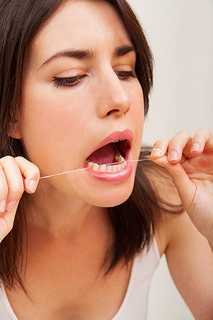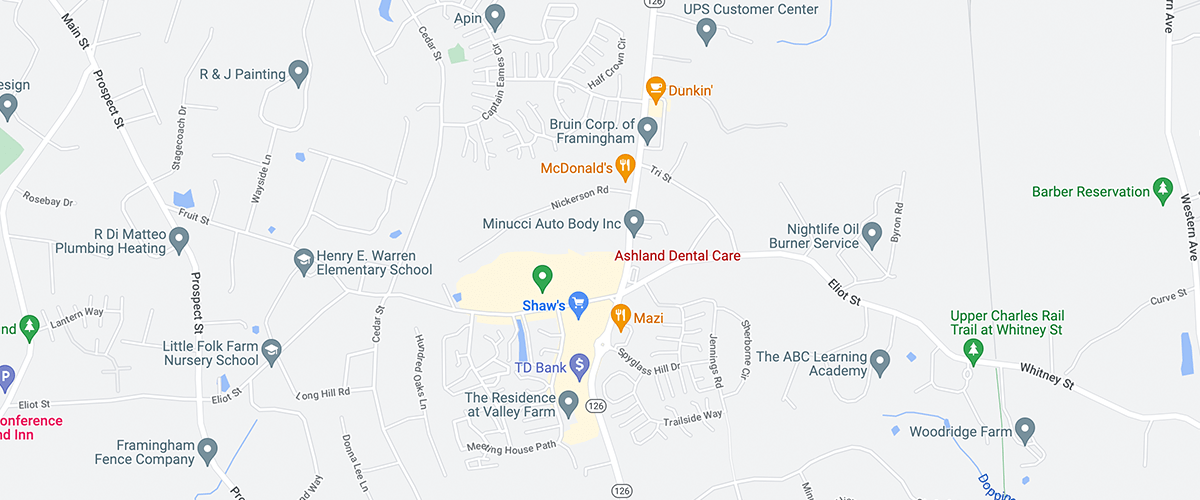August 30th, 2023

The choice to get dentures is a permanent decision so there are several important factors you should take into consideration. Many people have teeth that are not able to be repaired due to a variety of reasons, but for those who have the option and the money to repair their natural teeth they need to consider every choice they may have.
You have a choice!
Yes, it’s true! We do have a choice about whether we will have to have dentures in the future. Many people don’t realize that just by taking certain precautions they can actually prevent any serious issues from arising. For example, it’s very easy to reschedule that dental cleaning. However, it’s very important that you keep every appointment because our doctor will be able to catch small problems before you even realize you have them. Also, if there are any signs of gum disease you will know early enough to stop any further damage. One of the main reasons that many people end up needing dentures is because of either gum disease or because severe cavities have cause too many teeth to be extracted.
If you notice any of the following you should make an appointment at our Ashland office right away:
- Teeth are moving further apart
- Soreness or tenderness of the gums
- Trouble eating hard food
- Sensitivity
- You have already lost several teeth
- Toothaches
The key to avoiding dentures is prevention. Avoiding dentures is not impossible and can be as simple as staying on top of your oral hygiene. However, if you are currently experiencing any dental issues you should see our doctor now, because a small problem can quickly escalate into a very large and expensive dental procedure.
August 23rd, 2023

Bad breath: We’ve all dealt with it. You’ve been around people who have it and, like it or not, you have had it yourself. It can be embarrassing and uncomfortable, but how do you know if you have it? There is actually a simple test you can do to see if you have bad breath.
Wash your hands well, then put your finger in your mouth, way in the back. Scrape a little saliva from the back of your tongue, and then dab it on the back of your hand. Wait for one minute, then hold your hand to your nose and sniff. Is it fresh as a daisy? Or do you need to keep reading and learn how to freshen your breath?
How Bad Breath Starts
There are several ways that bad breath starts. Knowing the causes of bad breath is a solid start toward the cure.
- The bacteria in your mouth: Bacteria is always in your mouth. It covers your gums, hides between your teeth, and hangs out on your tongue. As it multiplies, it produces toxins that cause the foul odor in your mouth.
- Your bad habits: If you smoke cigarettes, a pipe, or cigars, or chew tobacco, you are not only harming your mouth and body, you are creating some really smelly breath.
- Your tonsils: If you still have your tonsils, they can be the cause of bad breath. They are pitted, so smelly substances can collect in the pits and lead to bad breath.
- Stomach issues: A stomach virus, ulcer, GERD, and other stomach issues could be the cause of your bad breath. A low-carb diet can put your body into a state of ketosis, which causes very bad breath.
- The foods you eat: Garlic, onion, and other pungent foods will linger with you … on your breath.
Tips for Busting Bad Breath
Achieving fresh breath isn’t difficult, but it does require a little work. Try these tips for fresher breath and a healthier mouth.
- Brush your teeth after every meal. You can also pick up a tongue scraper to use a couple of times a day to remove any lingering bacteria on your tongue.
- Floss once a day to remove food particles between your teeth as well as plaque. Your mouth will thank you.
- Gargle with special mouthwash to banish bad breath. The oxygen in it will kill the bacteria in your mouth that is causing your bad breath, and leave you fresh as a daisy!
- Drink water to avoid dry mouth, which is a common cause of bad breath.
- Ease your tummy troubles with antacids and other remedies. Ginger tea is a great tummy tamer.
- Chew gum that contains xylitol. Saliva keeps your mouth moist, and chewing gum makes you salivate. Bye bye, bad breath!
- Eat yogurt. It contains “good” bacteria that helps balance your gut and gives you a healthier mouth.
- Soothe your sinuses. Sinus infections can cause you to have bad breath. Actually, it is the post-nasal drip that causes the foul odor. Cure the infection and your breath will improve.
- Avoid all tobacco products (cigarettes, pipes, cigars, chewing tobacco, and snuff).
- Eat a healthy diet of fresh fruits and vegetables, lean meats, and whole grains.
And don't forget! Get regular dental checkups at Ashland Dental Care.
August 23rd, 2023

Whether it’s a dull and throbbing ache or a sharp pain, toothaches can come in many different forms. Chances are you’ve had the discomforting experience once or twice in your life. It’s the type of experience that nobody wants to have, because a toothache can be as annoying as fingernails scratching a chalkboard.
What’s a good way to describe a toothache? Let’s see … your mouth feels as if it’s being besieged by one of those Loony Tunes-style jackhammers. As fate would have it, toothaches always seem to occur over the weekend or after-office hours, leaving you to suffer and forcing you to cancel your reservation at that high-end restaurant you’ve been anticipating all week.
Not so fast!
While you’re probably going to want to skip the rib-eye steak, there are numerous tried-and-true home remedies you can use to ease the pain until you can make an appointment with our office. Here’s a look at four ways to soothe a toothache.
- Don’t underestimate the power of salt water. Rinsing your mouth with warm salt water will both soothe your toothache and disinfect your mouth. However, make sure the water is warm; cold water can further exacerbate a sensitive tooth. Follow up the saltwater rinse by swishing your mouth with hydrogen peroxide.
- Clove oil, eucalyptus oil, peppermint oil, and vanilla extract are proven to be comforting elixirs. Dip a cotton swab in one of these mixtures and apply it to your tooth and gums. These substances, which you may even have in your kitchen cupboards, are known to have pain-relieving qualities. For the best results, repeat the application throughout the day.
- Eating yogurt is good for toothaches and mouth pain. Yogurt is filled with healthy bacteria that combat pain. Afterward, place a cold compress on your jaw.
- Try flossing. Your toothache might be throbbing and severe, but there’s always a chance the pain is caused by a piece of food awkwardly lodged in your teeth.
We hope that helps! Give Ashland Dental Care a call to learn more!
August 16th, 2023

One of the most enjoyable parts of looking at family pictures is finding resemblances. You have your father’s brown eyes and your grandmother’s curly hair. You’ve got your aunt’s basketball height and your cousin’s freckles. But some similarities might not be so appealing—could one of those be a family tendency toward gum disease?
Studies have shown that periodontal disease appears to have some kind of genetic component, especially for serious diseases and those that appear early in the patient’s life. Aggressive periodontitis, for example, a relatively uncommon disease which causes rapid bone loss around certain teeth, is often more common among members of the same family. Other studies suggest there might be a genetic link between our immune response and the development of chronic periodontitis. So far, however, the link between genetics and gum disease is still under investigation.
We do know that environmental factors are an important trigger for gum disease. Failure to brush and floss, smoking, diet, stress, medical conditions such as diabetes—all can influence the health of our gums. The best way to overcome these factors is your own proactive approach! Thorough brushing and flossing, regular checkups and cleanings, proper nutrition, and avoiding smoking are all time-tested ways to keep your gums and teeth healthy. If you have a medical condition, proper treatment and medication will also help protect your oral health.
During your examination with our doctor at our Ashland office, please tell us about any family history of periodontal disease, your own gum care routine, and any habits or conditions which might influence your health. We can tailor treatment and offer suggestions for prevention based on a thorough knowledge of your medical history. We have many options available today for preventing and treating gum disease. Let’s make sure all your family albums are filled with beaming smiles—that’s the most appealing resemblance of all!




